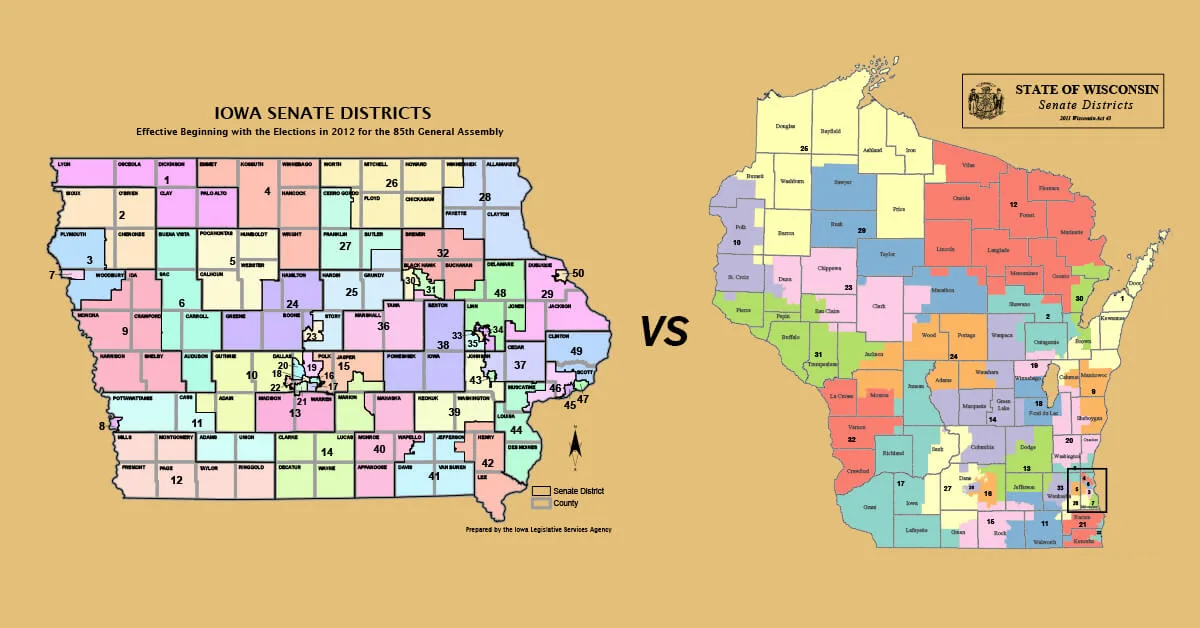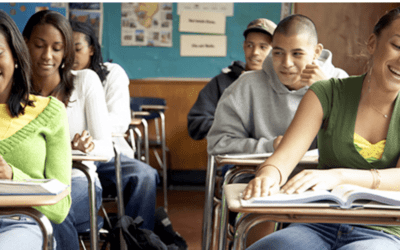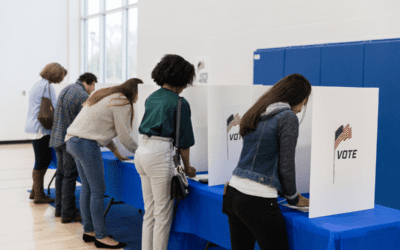
#image_title
GOP: Constitution let politicians draw maps. Critics: Let’s change constitution
If you want to meet voters across Wisconsin’s 17th State Senate district, be sure the gas tank is full. It’s a two-and-a-half hour drive from Cassville north to Necedah, and at least 90 minutes to go east-west from Monroe to the Mississippi River.
It is one of many districts that critics believe is not nearly as compact and uniform as it could be because of a partisan process known as gerrymandering. This week, a Democratic legislator introduced a proposal to let voters decide if the process should be changed. But the proposed Constitutional amendment faces an uphill climb given that legislative Republican leaders appear unlikely to take it up.
Rep. Dianne Hesselbein, D-Middleton, began circulating a proposal Tuesday to ask voters if they would like to switch out the state’s partisan redistricting process for a non-partisan process that legislators could not easily reject..
For that to happen, the proposal would have to pass in two consecutive legislative sessions. It would then go before voters in a statewide referendum.
Nonpartisan redistricting enjoys overwhelming support in Wisconsin, even among Republicans polled on the topic. And 50 of the state’s 72 counties have indicated support through referenda.
Hesselbein said she wants to take politics out of the decades-old process that requires lawmakers to redraw voting districts every 10 years based on updated U.S. Census numbers. Veteran legislators say minority party leaders used to have input in past decades, but the remapping in 2011 was done entirely by Republicans who had just taken control of the Assembly, Senate and the governor’s office.
The party in power can redraw lines in ways that lump groups of voters together, often in puzzle-piece shaped districts that prove confusing for voters and difficult for candidates who must campaign in large, often rural districts.
She said many Republicans claim they cannot address redistricting or complaints of gerrymandering because the process is outlined in the state Constitution.
“I am calling (Republicans) on their bluff,” Hesselbein said. “If the Constitution is the problem, then let’s change the Constitution. Let’s ask the voters what they think. I’m not afraid of the answer. Let’s see if they are.”
The U.S. Supreme Court ruled in June that federal courts don’t have the authority to decide cases related to partisan gerrymandering. That decision effectively ended a Wisconsin lawsuit seeking to overturn the 2011 boundaries. Republican leaders applauded the decision.
“We hope the high court’s ruling put an end to the litigation in Wisconsin associated with redistricting,” Assembly Speaker Robin Vos, R-Rochester, and Senate Majority Leader Scott Fitzgerald, R-Juneau, said in a joint statement at the time. “The Supreme Court has now confirmed what we have said all along, that it was not a matter for the federal courts to second guess the Legislature on these issues.”
Wendy Sue Johnson, an Eau Claire lawyer who was a plaintiff in the case seeking to overturn gerrymandering in Wisconsin, said she backs the constitutional amendment proposal announced Tuesday but is “extremely doubtful” it will gain traction, given that Republican leadership has been opposed to changing the current district boundaries that favor them.
“It seems unlikely to happen until Republicans have the courage to stand up to their party leadership,” Johnson said when asked whether Senate and Assembly Republicans would allow the proposal to come up for a vote.
Hesselbein’s proposal builds on legislation introduced last year by Democrats Sen. Dave Hanson of Green Bay and Rep. Robyn Vining of Wauwatosa. That bill went nowhere in the Republican-controlled Legislature.
It is based on the so-called “Iowa model” of redistricting, which was adopted by that state in 1980. Voting maps are drawn by a five-member, nonpartisan panel that consists of the top two majority and minority leaders in each party. Those four choose a fifth member to potentially break a party-line vote.
Fitzgerald, Vos, Sen. Jennifer Shilling, D-La Crosse, and Rep. Gordon Hintz, D-Oshkosh, would comprise the panel if the nonpartisan redistricting approach were enacted today.
The Legislative Reference Bureau would make any census-based changes to the maps. Public hearings would then be held in each of the state’s eight congressional districts.
A Marquette University Law School Poll last January found that 72 percent of Wisconsin voters preferred redistricting be overseen by a nonpartisan commission. The poll found a majority of both major political parties, including 63 percent of Republicans, favored nonpartisan redrawing of election districts.
The proposed constitutional amendment “is a good idea,” Johnson said, “because it would better reflect the will of voters. They want their votes to count.”
Despite the Supreme Court decision and failed attempts at state legislation, a grassroots effort involving the Wisconsin Fair Maps Coalition and others continues to raise awareness about redistricting reform, asking political candidates about that issue when they seek office. Milwaukee-based nonprofit Wisconsin Voices is working to organize greater discussion about the need for fair electoral districts.
“The issue of getting fair elections hasn’t disappeared despite the Supreme Court decision,” said Carlene Bechen, fair maps organizer with Wisconsin Voices. “This is an issue a lot of people really care about … Every politician should be signing onto this legislation.
Hesselbein points to Iowa’s map of legislative districts which are shaped more like rectangles and follow traditional map boundaries such as county lines.
“Mine looks like an upside down state of Texas,” she said of her 79th Assembly district.

Opinion: Empowering educators: A call for negotiation rights in Wisconsin
This week marks “Public Schools Week,” highlighting the dedication of teachers, paras, custodians, secretaries and others who collaborate with...

Opinion: The Affordable Care Act saved my life and this is why we have to protect it
The day I turned 26, I didn't give the birthday much thought. It wasn’t a landmark birthday—until it became the birthday that changed my life. On my...

Not just abortion: IVF ruling next phase in the right’s war on reproductive freedom
Nearly two years after the US Supreme Court overturned Roe v. Wade, another court is using that ruling to go after one of the anti-abortion right’s...

Opinion: Students and educators need us now more than ever. This Public Schools Week, commit to celebrating and advocating for them all year long
In this op-ed, Tessa Maglio with Wisconsin Public Education Network highlights Public Schools Week and how to support our schools, educators, and...




